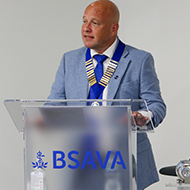Welfare organisations renew calls for greyhound racing ban
The coalition says there are welfare issues that can not be resolved.
A coalition of animal welfare organisations has renewed its calls for a ban on greyhound racing, following the release of new statistics.
The Cut the Chase Coalition, which includes Dogs Trust, RSPCA and Blue Cross, says that the latest data reveals a 47 per cent increase in greyhounds that died or were put to sleep last year.
According to the statistics, released by the Greyhound Board of Great Britain (GBGB) on Wednesday, 359 racing greyhounds died or were put to sleep in 2023, compared to 244 dogs the previous year. There were also 4,238 recorded injuries.
The Coalition stated that, since 2018, more than 2,700 greyhounds had died or been euthanised as a result of participating in greyhound racing.
The organisations have also criticised GBGB’s approach to the retirement of racing greyhounds.
Based on GBGB’s data, Cut the Chase Coalition has highlighted an increase in greyhounds remaining with their owner or trainer after retirement. The group believes this may leave more dogs kennelled in unsuitable conditions for the rest of their lives.
It concludes that, despite Cut the Chase Coalition’s involvement leading to some improvements in greyhound welfare, there are significant welfare issues they believe can not be resolved.
Samantha Gaines, head of companion animals at RSPCA, said: “The number of greyhounds dying or injured because of racing is not acceptable, especially as greyhound racing is a leisure activity which 91% of the UK population do not follow or participate in.
“The only way to protect greyhound welfare is to phase out greyhound racing across the UK.”
However GBGB has condemned the Coalition’s statement, accusing it of using misleading and inaccurate information to substantiate its claims.
The board says that the Coalition’s use of cumulative figures fails to accurately represent GBGB’s reduction of greyhound fatalities. It says that, although more than 2,700 greyhounds had died since 2018, the number of greyhounds being euthanised had actually decreased by 54 per cent during this time.
It has also criticised Cut the Chase Coalition’s concerns about the retirement of greyhounds from racing.
In contradiction to the Coalition’s welfare concerns, GBGB believes that retired greyhounds living with owners and trainers receive more welfare protection than domestic pets. It says that, even when greyhounds are no longer registered with GBGB, its Stipendary Stewards and Regional Regulatory Vets continue to regularly assess welfare standards.
Overall, GBGB says that it ensures strict adherence to its regulatory standards, and fully investigates any member which fails to follow its Rules of Racing. It maintains that it is transparent in its practices and statistics, going beyond the requirements set out by Defra.
Mark Bird, chief executive of GBGB, said: “We can never be complacent when it comes to welfare but it is pleasing that our work around track safety is beginning to show positive results and our many welfare initiatives are limiting the impact of the homing crisis.
“We remain focused on delivering our welfare strategy in its entirety and continue to call on the betting industry to fulfil their own responsibilities in helping us meet our welfare ambitions which are vital for the long-term success of our sport.”
Image © Shutterstock



 Julian Hoad has been confirmed as the new president of the British Small Animal Veterinary Association (BSAVA), taking over from Carl Gorman.
Julian Hoad has been confirmed as the new president of the British Small Animal Veterinary Association (BSAVA), taking over from Carl Gorman.